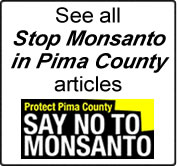Peril in Allergen-Free Food Products, Chicago Tribune Special Report Finds
If you’re a parent of a food-allergic child, the phrase, “Let the buyer beware,” can’t be more true. An alarming number of products sold as allergen-free actually contain harmful amounts of allergens, a Chicago Tribune investigation has found – and American children with food allergies end up suffering unnecessary reactions, including life-threatening reactions that send them to the hospital.
This news comes on the heels of a Centers for Disease Control and Prevention (CDC) report that found that food allergies among children in the United States are on the rise, having increased 18 percent from 1997 to 2007.
The Tribune investigation found that manufacturers can mislabel their product and some companies do little or no testing. In addition, government agencies rarely police products. An example cited in Friday’s Chicago Tribune investigation: Wellshire Kids’ Dinosaur Shapes Chicken Bites were labeled “gluten-free,” but they were tested at one of the nation’s leading food-allergy labs at the University of Nebraska and were found to contain high amounts of gluten. The testing was performed after two different mothers had to bring their children into the emergency room after their children ate these products. Both children experience severe reactions to gluten-containing wheat. Although the manufacturer eventually stopped making these chicken bites, the product – which is classified as a meat product, a category of food that has no official rules concerning the “gluten-free” label – has not been recalled. So, supplies of this product that haven’t been sold yet remain on store shelves. “The weak and murky federal rules on gluten leave food companies wiggle room and consumers at risk,” the Chicago Tribune story stated.
Even so, the growing number of children with food allergies has led to an increase in the number of foods that have been recalled for food-allergy reasons. To determine the full scope of the problem, the Tribune created a computer database of 2,800 recalls related to food allergies that have occurred over the last 10 years. The results of compiling this information? The newspaper found that roughly five products a week are recalled because of hidden allergens, making it one of the top reasons any consumer product in America is recalled. Yet, in many cases, neither the government nor the companies ever inform consumers. Nearly half of the allergy-related recalls in the last 10 years were not announced to the public.
References:
Branum AM, Lukacs SL. Food allergy among U.S. children: Trends in prevalence and hospitalizations. NCHS data brief, no 10. Hyattsville, MD: National Center for Health Statistics. 2008.
Roe, Sam. Children at risk in food roulette. Mislabeling, lax oversight threaten people with allergies. Chicago Tribune, November 21, 2008. Link to story.
Schnurnberger, Lynn. What America Really Eats. PARADE. November 16, 2008. Pages 6-7.
Melissa’s Comments:
If the government rarely inspects food to find problems and expects companies to police themselves, that means consumers, especially those who allergic themselves or have children with severe food allergies, need to be extra vigilant. To instill the importance of vigilance on your part, be sure to check out the Hidden Allergen Tracker, the Tribune’s Custom Database of allergy-related food recalls over the last 10 years. You can search the database by product, allergen, kind of food, food recall area, or multiple fields. I think you’ll be surprised that even some brands of foods sold in health food stores have been silently recalled.
What can you do to keep you or your food-allergic children safe? Minimize food products that you buy to reduce the risk of unpoliced, mislabeled food products. Buy more fresh produce and make most of the foods that your family eats creative combinations of whole foods – which are both growing trends because of the economic crisis. A recent PARADE magazine poll found that people are changing their habits because of rising food prices: 35 percent of people surveyed said they are preparing more meals from scratch; 48 percent are eating out less than they used to; and 21 percent are planting their own vegetable garden and reaping the harvest – all good strategies for protecting yourself from hidden food allergens.
Many busy parents hate the idea of staying at home and cooking without processed convenience foods.That’s often because they don’t know how to cook with whole foods and don’t realize how simple and tasty it can be. My new E-book, Healthier Holidays Going Against the Grain, which should be available for purchase next week, offers simple tips and easy recipes for food that is free of wheat, gluten, corn, cow’s milk, soy, and peanut.
© Copyright 2008 Melissa Diane Smith
